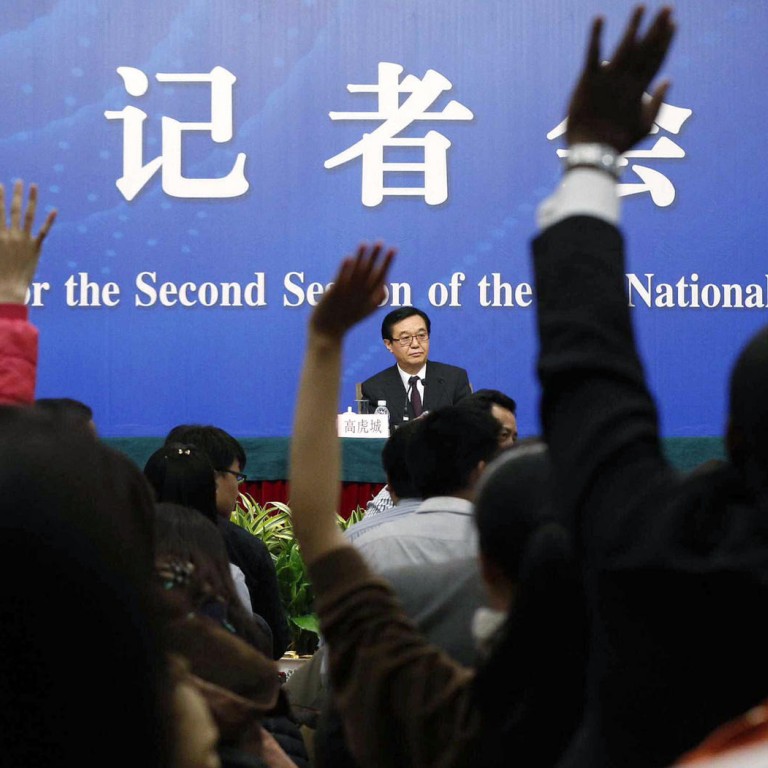
Commerce Minister Gao Hucheng says China must improve trade quality
China may lead world in value of imports and exports, but it cannot rely on manufacturing cheap goods, says commerce chief Gao Hucheng
While China was unsurpassed in the quantity of its trade, the nation must now improve the quality of its goods, Commerce Minister Gao Hucheng said yesterday in Beijing, where the National People's Congress is holding its annual meeting.
Being the biggest trading nation was not the same as being a "strong" one, Gao said.

"We are fully confident of meeting the 7.5 per cent trade-growth target in 2014," he said. "The developed economies have begun recovering, with demand expected to slowly grow, which will bolster China's exports."
Gao's comments highlighted the challenges ahead for China to improve the quality of its exports after decades of being the "world's factory" known for churning out low-end products cheaply. It was now time for manufacturers to boost their competitiveness.
"Most of the products we export are low value-added, and few carry their own brands. Our companies also lag in building global marketing networks and strategies," he told reporters. "These are problems we must face and solve while we make the transition from a big trading nation to a strong one. This will involve a process of structural adjustment and a transformation in our growth methods."
Leaders hope to boost productivity by adopting more advanced technology and innovation. Economic growth eased to 7.7 per cent last year, its slowest in more than a decade.
An ageing population and rising competition from other emerging markets threaten to erode China's rapid growth, economists say.
Most products we export are low value-added, and few carry their own brands
According to Gao, a quarter of the mainland's more than 700 million workers are employed in trade-related occupations, either directly or indirectly, indicating that moving industries up the value chain might have a remarkable impact on employment.
But upgrading equipment and technology would be costly, analysts say. For example, the investment required to upgrade steel mills to meet emissions standards could be around 50 yuan to 100 yuan (HK$126) per tonne of steel capacity, according to Citigroup research. That is about four to eight times the net profit per tonne earned by steel producers in 2012, it said.
Trade frictions are another factor weighing on exports. Gao said Beijing solved an anti-dumping dispute over domestic solar panels with the European Union last year, providing something of a "rebirth" to the mainland solar industry.
Manufacturers in the United States and Germany have battled to maintain sales as cheaper Chinese panels flood their markets. Gao said China should learn that "some products and industries should not expand overly fast" or focus too much on foreign markets.

